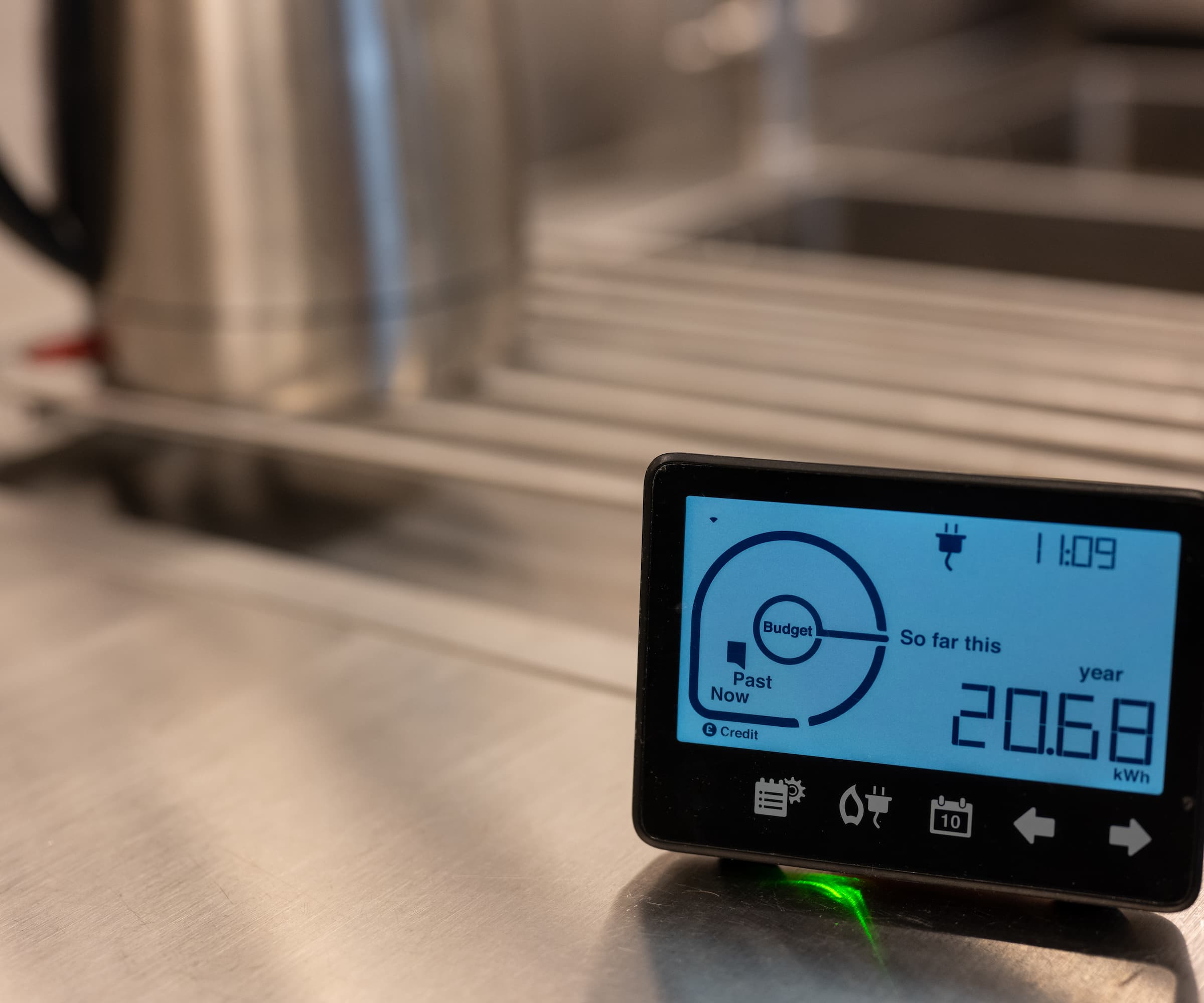Smart meters revealed to discriminate based on where people live
A 'north-side divide' has been revealed in smart meter effectiveness with those in the north worse off

Bring your dream home to life with expert advice, how to guides and design inspiration. Sign up for our newsletter and get two free tickets to a Homebuilding & Renovating Show near you.
You are now subscribed
Your newsletter sign-up was successful
The rollout of smart meters across Great Britain was initially heralded as a step toward smarter, greener energy consumption.
However, a recent investigation by BBC Panorama reveals a troubling regional divide in how the technology is leaving those in the north more exposed to energy price rises.
In northern England and Scotland, smart meters are facing significant issues that could be affecting millions of customers, giving them inaccurate bills and the inconvenience of having to submit manual meter readings.
North-side divide in smart meter effectiveness
Customers in northern England and Scotland are encountering problems that are not experienced in the rest of the country. The underlying issue lies in the type of technology used to transmit data from smart meters back to energy suppliers.
While smart meters in the southern regions rely on cellular networks – similar to mobile phone signals – those in the north use longer-range radio frequencies, which can cause difficulties, particularly in more rural or hilly areas.
What is causing the problem?
The regional divide stems from the differing technologies used to connect meters to suppliers.
In southern England, Wales, and the Midlands, smart meters use cellular signals, which can be boosted with an aerial if the signal is weak. However, in northern England and Scotland, the meters rely on radio frequency signals, which have a much wider reach but can struggle to transmit through geographical barriers such as hills.
Bring your dream home to life with expert advice, how to guides and design inspiration. Sign up for our newsletter and get two free tickets to a Homebuilding & Renovating Show near you.
This technology was chosen initially to improve coverage in rural areas, but it has led to problems, particularly in more urban areas that might have better access to modern cellular networks.
Experts, including engineers, have confirmed that these technical challenges are more prevalent in the north.
"You can end up going to someone’s house at the bottom of a mountain in the north and the radio frequency can’t get through, but there could be a good 3G signal nearby, which the customer doesn’t know about," one engineer explained. This disconnect leads to issues such as missed readings, estimated bills, and the need for manual submissions by customers.

Government and Energy UK remain hopeful for the future of smart metres
Despite these challenges, both the government and Energy UK remain optimistic about the future of smart meters and still promote them as a energy saving tool.
Energy UK, which represents energy suppliers, acknowledges the issues in the north but is working on solutions to improve signal range and connectivity. The government is committed to ensuring that all smart meters function correctly, stating that suppliers must address these issues more swiftly.
Recent surveys indicate that while 90% of smart meters are operating as expected, a significant number of customers still face problems. For those in the north, particularly in areas affected by signal issues, the situation remains frustrating, as many have had to manually report their readings or deal with estimated bills.
However, BBC Panorama revealed that both government bodies and energy companies are working on a solution to future-proof smart meters, with new technology expected to improve the situation.
The government remains confident that with continued investment and technological improvements, the benefits of smart meters will outweigh the challenges and remain committed to their target of installing smart meters in at least 74.5% of homes by the end of 2025.

News Editor Joseph has previously written for Today’s Media and Chambers & Partners, focusing on news for conveyancers and industry professionals. Joseph has just started his own self build project, building his own home on his family’s farm with planning permission for a timber frame, three-bedroom house in a one-acre field. The foundation work has already begun and he hopes to have the home built in the next year. Prior to this he renovated his family's home as well as doing several DIY projects, including installing a shower, building sheds, and livestock fences and shelters for the farm’s animals. Outside of homebuilding, Joseph loves rugby and has written for Rugby World, the world’s largest rugby magazine.
